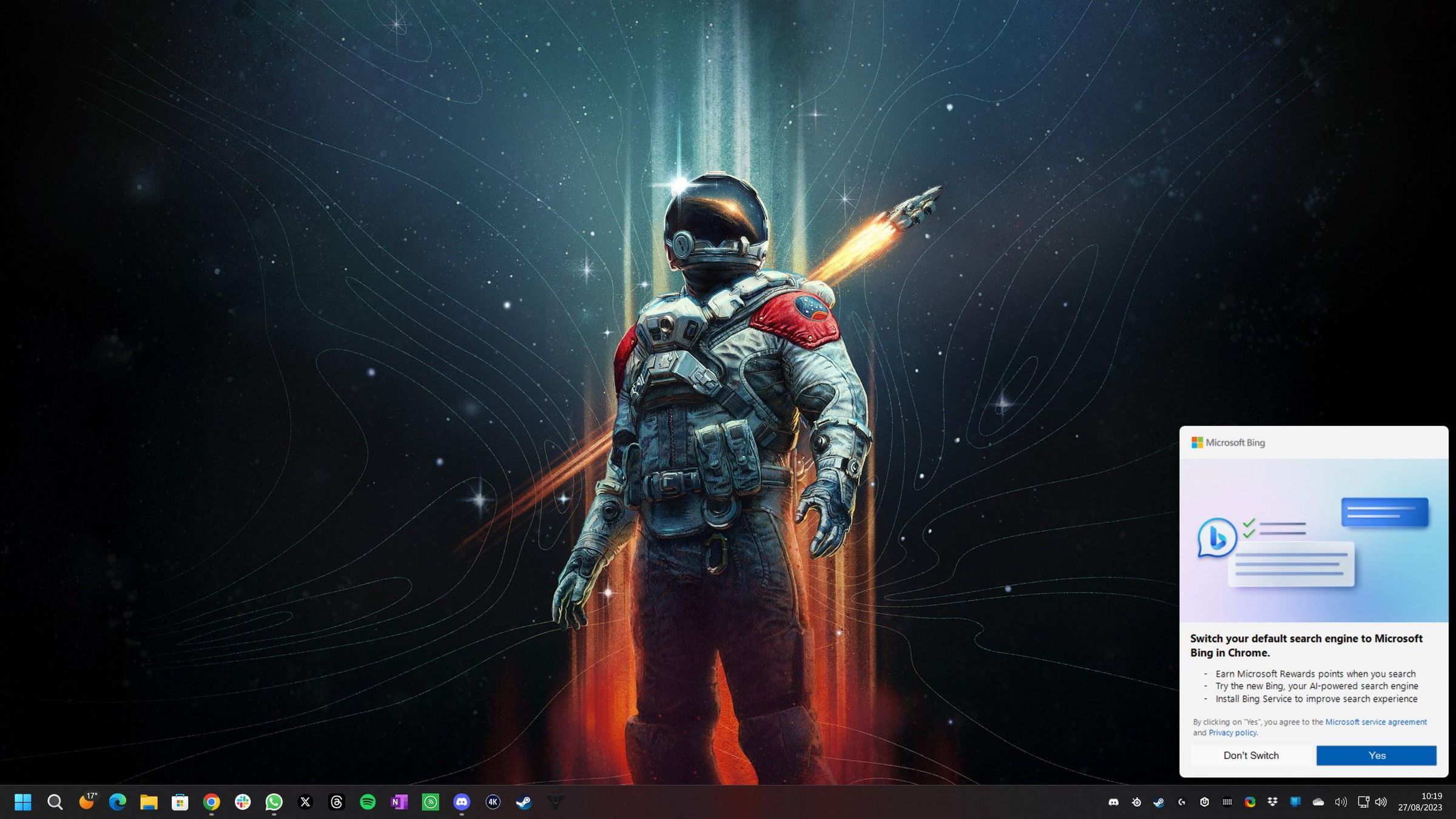I thought I had malware on my main Windows 11 machine this weekend. There I was minding my own business in Chrome before tabbing back to a game and wham a pop-up appeared asking me to switch my default search engine to Microsoft Bing in Chrome. Stunningly, Microsoft now thinks it’s ok to shove a pop-up in my face above my apps and games just because I dare to use Chrome instead of Microsoft Edge.
Source: Microsoft is using malware-like pop-ups in Windows 11 to get people to ditch Google
When I was in 8th grade, one of my teachers was out sick, and the principal took over the class for the day. He talked about frames of reference. To illustrate the point, he asked if we had seen the movie, E.T. Of course, we all had. It was the Star Wars-level blockbuster of the summer of 1982. He asked if we remembered the bus scene. None of us could. “You know, ‘Uranus?'” Oh, right. Yes, we all remembered that line. Then he asked us if we could remember what any of the other kids were doing on the bus. Nope. Nothing. They were standing, yelling, throwing things, and generally being disruptive. He said, as a principal, this anarchy on a school bus horrified him. It never even registered with us.
This lesson continues to reverberate with me over 40 years later.
Technical people like me “govern” our computers and devices as much as we can, so when these things happen, they stick out like a sore thumb, and we set about stopping them from happening again. Even after 30 years of “being on the internet,” I am RUTHLESS about spam. When one show up in my inbox, I deal with it, so that, by and large, every email that comes through is of interest and needs my attention.
The people who use Windows because it’s the cheap, default choice are the kind of people that have 10,000 unread emails in their inbox, all of which are spam for services and offers they agreed to be spammed by, because they couldn’t be bothered to at least tick the opt-out box (which only works half the time anyway). When the vast majority of these users see a popup like this, they simply click the button to dismiss it, just like hundreds other digital annoyances they put up with all day long, which they do not understand, and which they do not know how to turn off.
It doesn’t matter that we get upset about this. It’s already been proven several times over that we cannot influence this situation. The incentives just don’t align between users of Windows and Microsoft’s management. You’d expect that they would care about what “power users” like developers would think, so I guess it’s telling how small that community of users is compared to the rest of the people who use Windows.
The real surprise here is that The Verge wrote a piece that is overtly negative about Microsoft.

